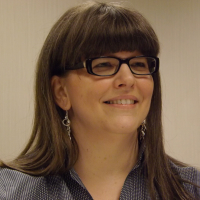Over at +972, Ami Kaufman takes issue with those of us who advocate for an end to occupation, support Israel’s social protest movement, and marshal as one of our arguments the fact that occupation and settlement are pretty expensive endeavors (an argument I made here).Kaufman writes:
Every once in a while you’ll hear someone say that the occupation costs us so much money. Money that could have gone to health, education, infrastructure and whatever.
Well, the question in itself is, how to say…stupid.

“Stupid”…! Well, I would take umbrage (a thing at which I excel), but for the fact that Kaufman makes some excellent points.
“Even if there was no occupation to fund,” he writes, “the money Israel would ‘save’ would never trickle down to the middle class…Because corporate capitalism wouldn’t let it.” He cites a recent Adva Institute report that found that “between 1989 and 2011, the Ministry of Defense received budget increments totaling NIS 48 billion (2010 prices) earmarked for the conflict with the Palestinians.”
So, that’s just over 2 billion shekels [more than $510 million] a year. A lot of money, you say? I don’t.
Why? Because what Finance Minister Yuval Steinitz did just this week is a perfect example of how corporate capitalism dwarfs those numbers. Steinitz, without any public debate on this move, decided to give tax benefits worth 20-36 billion shekels to the biggest international corporations. Just like that.
This is a very important point: Money doesn’t just move around from one government pocket to another. If, in an alternative universe, the Israeli government were to stop spending money in the territories today, it’s hard to imagine that the cash would be turned over to hospitals and rape crisis centers tomorrow.
But to my mind the larger issue is the question of Israel’s priorities: Yes, coddling corporate capitalism has become a centerpiece of Israeli policymaking—but so is the occupation.
Since 1994 (one year post-Oslo), successive Israeli governments have built half the houses in the settlements, but only a fifth of the houses inside the Green Line—it’s pretty clear what hold’s Israel’s attention. For social justice protesters to focus entirely on their country’s growing oligarchy without so much as a nod to that other priority is something of an act of willed ignorance, and willed ignorance is a very poor engine for forward movement.
Kaufman’s second point is the most important one, though:
It doesn’t matter how much the occupation costs. It doesn’t matter whether it costs 1 billion shekels a year, 10 billion a year or only 20 shekels a year.
It doesn’t matter, because it’s just wrong. You don’t calculate how much it costs to commit a crime. You just stop committing the crime, for Christ’s sake!
I agree, fully and without reservation. That last sentence perfectly encapsulates the fury and frustration I often feel as a 25-year veteran of the struggle to achieve a just peace.
But Ami Kaufman and I are not the only Israelis (American–or otherwise) with something to say about the occupation. I cannot organize people where I want them to be—I can only organize them where they are.
And right now, a lot of Israelis are on Rothschild Boulevard, demanding a fairer, more humane national economy. Even as I support them, I will do everything I can to highlight the fact that their struggle is inextricably bound to the struggle to end the occupation.






